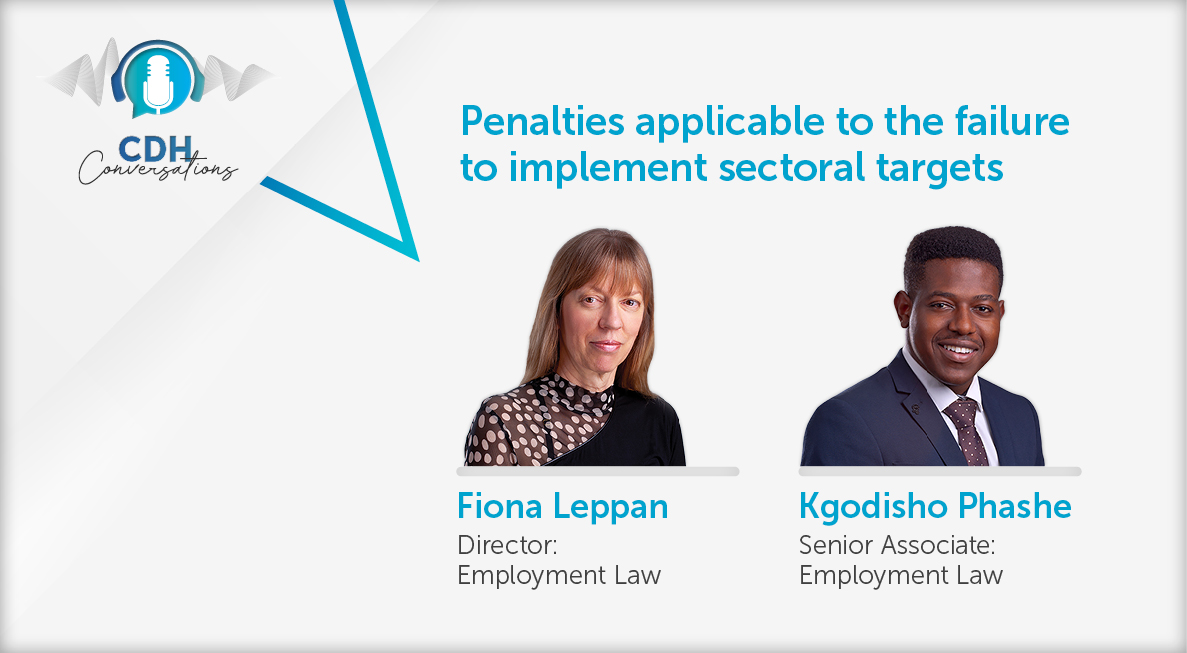Whose responsibility is it anyway?
Should an employer require that the ‘incoming’ contractor is to assume responsibility for remedying defects or damages caused by an outgoing contractor, it will be prudent for the employer to ensure that this is expressly stated in the agreement, failure to do so, as can be seen from the case of Trencon Construction (Pty) Ltd v South African Airways (Pty) Ltd and another [2015] JOL 33366 (GJ), may result in the employer being left wanting.
Trencon and SAA concluded a Joint Building Contracts Committee (JBCC) Principal Building Agreement for the construction of a departure lounge at the OR Tambo International Airport, wherein a principal agent was also appointed. Trencon sought payment in the sum of R552,040.38 from SAA, alternatively, that the principal agent be ordered to issue a final payment certificate in the claimed amount.
SAA and the principal agent contended that there were defects in the works which had to be remedied before a certificate of final completion could be issued and argued that Trencon was not entitled to payment as it had not complied with its obligations in terms of clause 8.2 of the agreement, which stated that:
“The contractor shall make good any physical loss and repair damage to the works, including clearing away and removing from site, all debris resulting therefrom, which occurs after the date on which the possession of the site is given and up to the issue of the deemed certificate of final completion and resulting from . . .”
It was argued that the intention of SAA was to have the works completed and thus it could not have been intended that, despite the appointment of Trencon to complete the works, that the contractor could receive payment without the works having been completed.
This argument was found not to accord with the intention of the parties as appeared from the unambiguous written terms of the agreement.
It was common cause that the defects were not caused by Trencon but by the contractor, TL Steward, who had preceded Trencon’s appointment. In addition, there was no contention that the loss or damage occurred after the date on which possession of the site was given to Trencon.
The court held that Trencon was not responsible to make good the loss or repair the damage, there being no other provision in the agreement which rendered the incoming contractor liable to do so.
Further, the court held that as the loss or damage did not occur after the date on which possession of the site was given to Trencon, it was not Trencon’s responsibility to make good the loss or repair the damage in question.
It should be noted that in the latest edition of the JBCC Principal Building Agreement, published in 2014, the phrase ‘which occurs after the date on which the possession of the site is given’, that appears in the 2005 and 2007 editions, has been omitted.
The information and material published on this website is provided for general purposes only and does not constitute legal advice. We make every effort to ensure that the content is updated regularly and to offer the most current and accurate information. Please consult one of our lawyers on any specific legal problem or matter. We accept no responsibility for any loss or damage, whether direct or consequential, which may arise from reliance on the information contained in these pages. Please refer to our full terms and conditions. Copyright © 2026 Cliffe Dekker Hofmeyr. All rights reserved. For permission to reproduce an article or publication, please contact us cliffedekkerhofmeyr@cdhlegal.com.
Subscribe
We support our clients’ strategic and operational needs by offering innovative, integrated and high quality thought leadership. To stay up to date on the latest legal developments that may potentially impact your business, subscribe to our alerts, seminar and webinar invitations.
Subscribe


